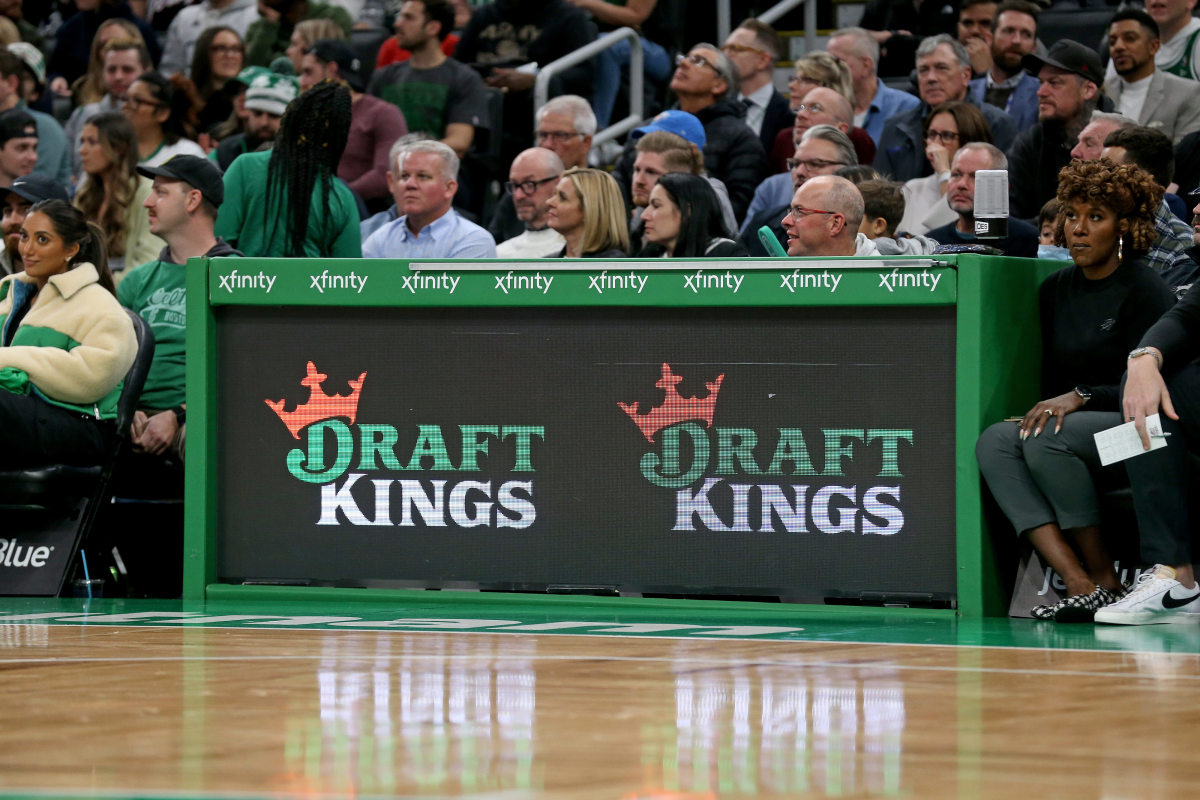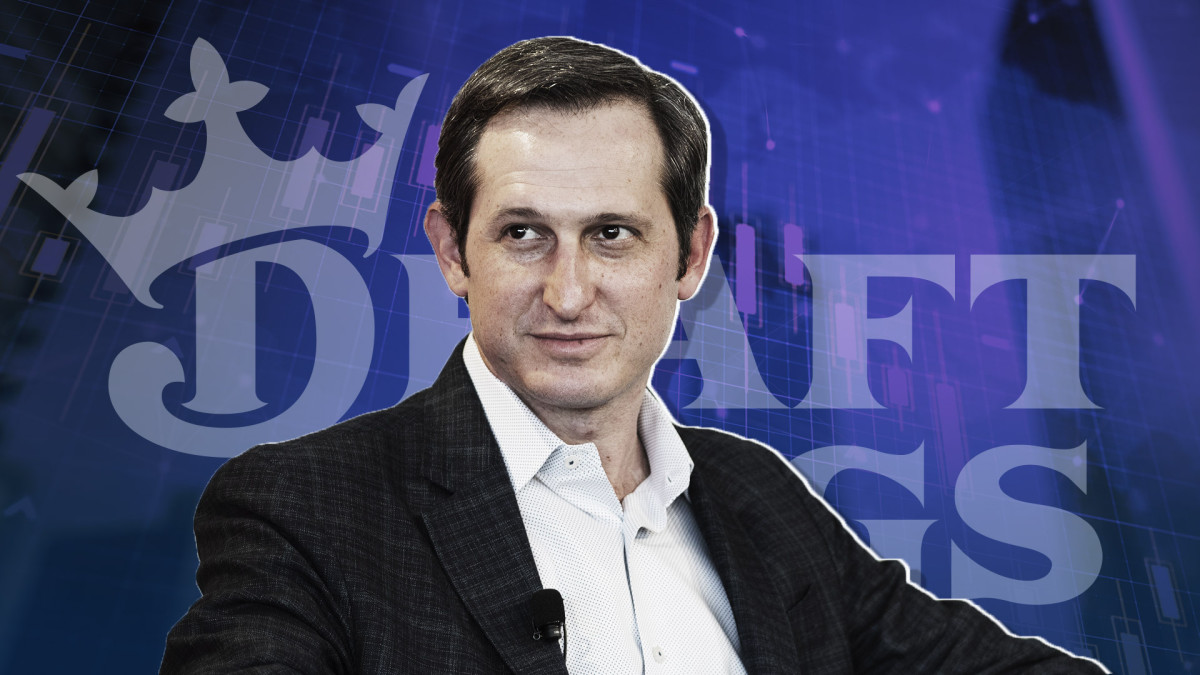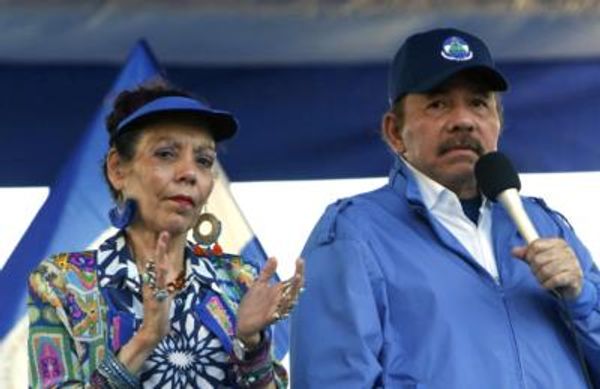
Football coaching legend Vince Lombardi liked to say that it's "not whether you get knocked down, it’s whether you get up."
DraftKings (DKNG) has been taking some hits lately in the form of state taxes, and the sports-betting platform is digging deep.
Related: Analyst updates DraftKings stock price target as key metric faces pressure
DraftKings recently said that starting in January it would implement gambling surcharges on winning bets in states that have multiple betting operators and where the tax rate on those companies is above 20%, which means Illinois, New York, Pennsylvania and Vermont.
"I think we believe this is what’s best for us," Co-Founder and Chief Executive Jason Robins told analysts during the company's earnings call. "And I would imagine that if that’s our calculus, then others would come to the same conclusion. But we really don’t know and we’ll have to see."
Robins added that there might be "other ideas for how to implement something like this that might be better than what we came up with."

Getty/TheStreet
"We thought through this quite a bit, but you never know," he said. "So we do have some time between now and January 1st, and we’ll see what happens."
In a letter to shareholders, signed by Robins and Chief Financial Officer Alan Ellingson, the company said that New York legalized mobile sports betting and its tax rate of 51% in 2021, making it at the time only the second state in the nation, after Pennsylvania, that had multiple sports betting operators and a tax rate above 20%.
DraftKings: competing against illegal market
For the next three years, DraftKings said, no other states followed suit, so there was no major mechanism forcing the Boston company or any of its competitors to address the prospect that higher tax rates would become more widespread.
“However, over the past several months, we have seen a shift to tax rates over 20% in certain competitive markets, including a recent significant tax increase in Illinois,” the shareholder letter said.
Related: Analysts revise DraftKings stock price target after Kentucky Derby
Illinois recently switched from a flat 15% tax on adjusted gross revenue for online sports betting companies to a new progressive rate ranging from 20% to 40%, the Associated Press reported.
The policy puts Illinois’s top tax rate for online sports gambling operations in the same league as New York, which has a 51% top rate.
Nearly 40 states offer legal sports betting in some format, along with Washington D.C. and Puerto Rico, while 30 states have online sports betting via either smartphone apps or websites, according to Legal Sports Book.
"We now must consider the prospect that some states may choose to tax the industry at a rate that is in excess of what we can absorb while still generating a reasonable profit margin and remaining competitive against the pervasive illegal market that pays no taxes at all," DraftKings said.
The surcharge, the DraftKings executives said in the letter to holders, "will be fairly nominal to the customer. In Illinois, for example, it will amount to a low to mid-single digit percentage of the net winnings a customer would previously have received, but we believe additional upside potential exists for DraftKings’ adjusted Ebitda in 2025 and beyond from this gaming tax surcharge."
DraftKings surcharge unpopular on X
A random sampling of comments on X, formerly Twitter, found very little enthusiasm for the surcharge.
"Usually they try to hide it when they’re passing on costs to the consumer," ROI Guy wrote. "This seems like an incredibly bold and stupid way of implementing that."
"How do they expect to maintain marketshare with this offering?" Alec Robinson said. "Who will bet there?"
"DKs way of doing this is idiotic (no surprises there) but shouldn't we angry at these states for raising taxes to such egregious levels?" Ickis commented. "Ultimately these high taxes fall on the consumer in the form of higher juice or DKs proposed surcharge."
A look at the numbers shows DraftKings reported a profit during the second quarter for the first time since the company went public in April 2020. It earned 10 cents a share, compared with a loss of 17 cents a share a year earlier and beating Wall Street’s consensus forecast of a loss of a penny a share..
Monthly unique players increased to 3.1 million, up 50% from the year-earlier quarter, the company said. The jump reflected strong unique player acquisition and retention across DraftKings’ Sportsbook and iGaming products, the expansion of its Sportsbook product into new jurisdictions, and the impact of the acquisition of the digital lottery app Jackpocket, DKNG said.
Macquarie analyst calls surcharge 'interesting idea'
"We anticipate the healthy customer acquisition environment to continue through the back half of the year and possibly beyond, which may indicate that the US online gaming opportunity could be even larger than we previously thought," Robins said.
Several analysts adjusted their price targets for the company following the earnings report.
More Tech Stocks:
- Sony’s Bungie criticized for layoffs after CEO spends millions
- Nvidia stock tumbles in tech slump amid questions over key chip
- Analysts adjust Palantir stock price target ahead of earnings
Macquarie lowered its price target on DraftKings to $50 from $52 and kept an outperform rating on the shares.
The investment firm noted that much of the call focused on the company's plans to introduce the gambling surcharge on customers' winning bets in states that are highly taxed.
Macquarie called the plan "an interesting idea that could be very accretive" to fiscal 2025 profit margins and earnings before interest, taxes, depreciation and amortization and beyond.
Ebitda, a non-GAAP accounting benchmark, can be a useful tool for comparing companies subject to disparate tax treatments and capital costs, or analyzing them in situations where these are likely to change.
BMO Capital analyst Brian Pitz lowered the firm's price target on DraftKings to $48 from $54 and maintained an outperform rating on the shares.
The company reported a "soft" second quarter as its revenue and Ebitda missed estimates, while management announced the planned surcharge, Pitz said.
Pitz added, however, that improvement in the company's current business' foundational economics give him more confidence that DraftKings will deliver significant Ebitda over time.
Stifel analyst Jeffrey Stantial lowered the firm's price target on DraftKings to $48 from $50 and kept a buy rating on the shares, which remain a Stifel Select List idea.
Stantial said he shared the market's skepticism and hesitation regarding potential consumer backlash toward DraftKings' proposed surcharge. But he continues to see a “compelling upside bias to out-year estimates, now even further discounted.”
Related: Veteran fund manager sees world of pain coming for stocks







